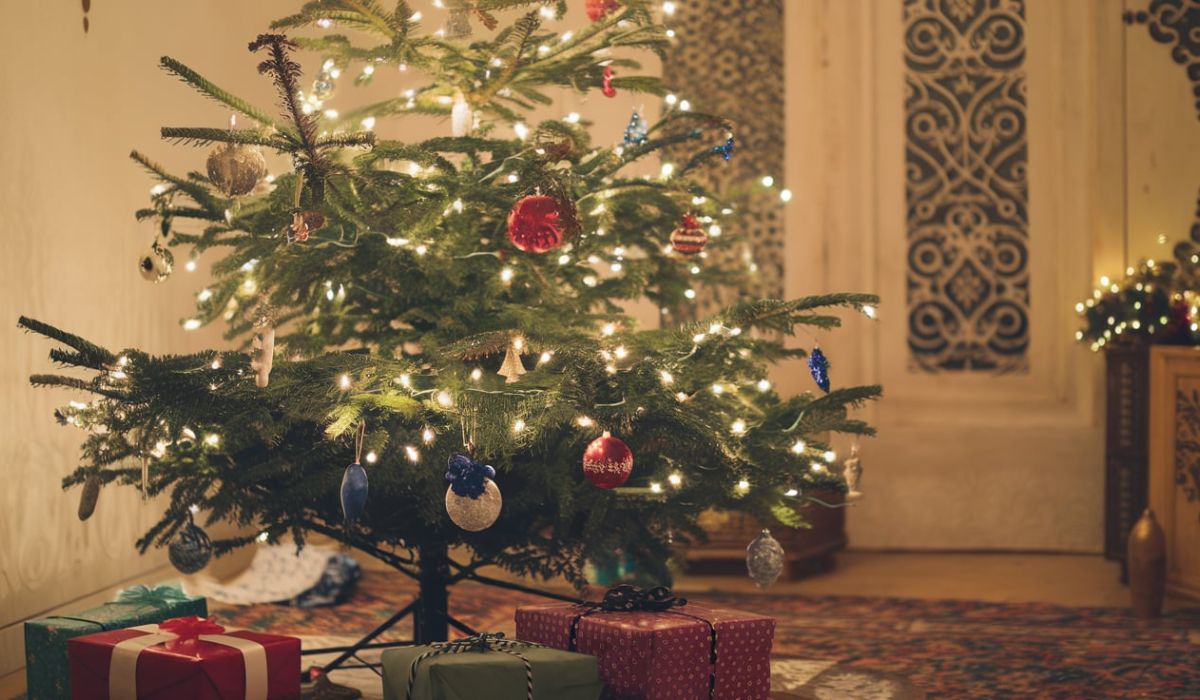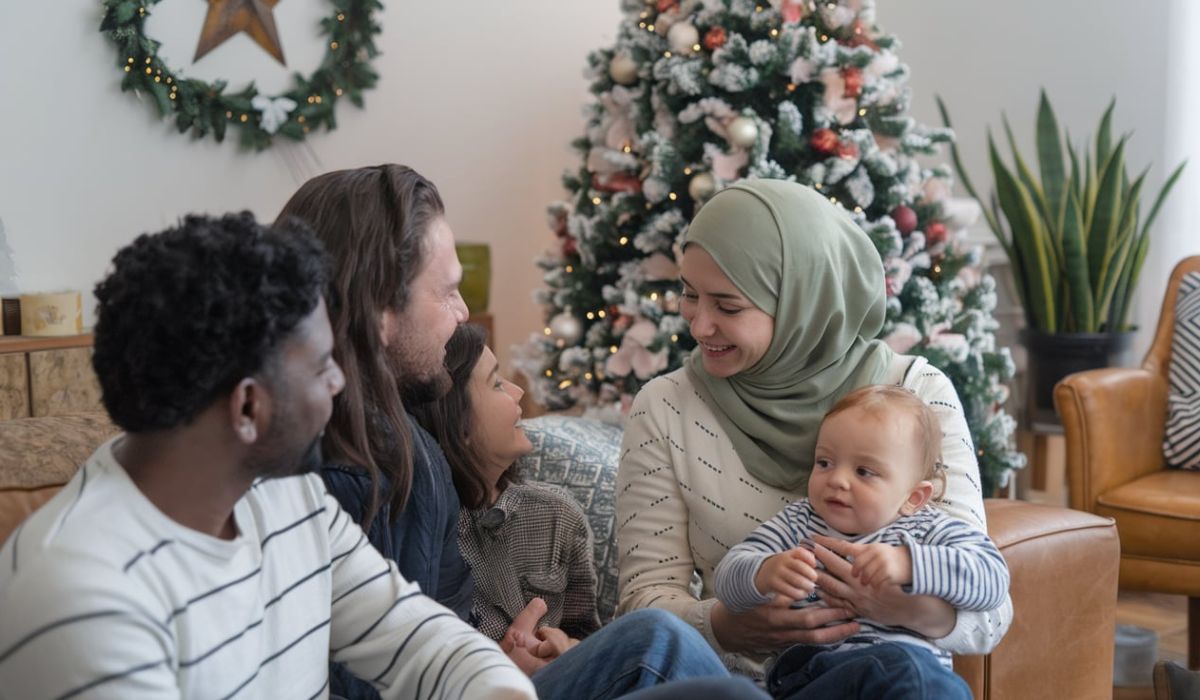Christmas is a holiday celebrated by millions of people around the world, marked by gift-giving, festive meals, and religious observances. For most people, it’s a time to celebrate the birth of Jesus Christ, but what about Muslims? Do Muslims celebrate Christmas? This is a question that many people, both inside and outside the Muslim community, often wonder about. While Christmas may be widely recognized and celebrated in various parts of the world, it’s not observed by everyone. In this article, we’ll explore why Christmas is not a religious holiday for Muslims, how they view it, and how some Muslims might participate in secular aspects of the holiday.
What is Christmas and Why Is It Celebrated?

Christmas, observed on December 25th each year, marks the birth of Jesus Christ, who is central to Christian faith. It is a time of celebration, where Christians honor the life and teachings of Jesus through church services, family gatherings, and the exchange of gifts. For many, it’s a joyful occasion, symbolizing love, generosity, and the spirit of giving.
But what about those who don’t follow Christianity, particularly Muslims? Do Muslims celebrate Christmas, and if not, why? To answer this, we need to understand both Christmas and how different faiths approach this holiday.
The Religious Significance of Christmas for Christians
For Christians, Christmas is not just about festive decorations or family dinners—it’s a deeply spiritual holiday. It commemorates the birth of Jesus, whom they believe is the Son of God and the Savior of humanity. The celebration of Christmas is rooted in religious traditions, including church services, prayers, and the recounting of the nativity story, which tells of Jesus’ birth in Bethlehem.
The idea of Jesus as the Messiah is central to Christianity, which leads us to a key distinction between Christian beliefs and those of Muslims.
What Do Muslims Believe About Jesus (Isa)?

In Islam, Jesus (known as Isa in Arabic) is considered one of the greatest and most revered prophets, but not the Son of God. Muslims believe that Jesus was born to the Virgin Mary (Maryam in Arabic), and that he performed miracles. However, Islam teaches that Jesus was a messenger of God, not divine himself.
While Christians view Jesus’ death and resurrection as pivotal to their faith, Muslims believe that Jesus was neither crucified nor killed but rather was taken up by God. This theological difference is crucial when considering the question of whether Muslims celebrate Christmas.
Is Christmas a Religious Holiday for Muslims?
Christmas, as a celebration of the birth of Jesus as the Son of God, holds no religious significance in Islam. Since Muslims do not believe in the divinity of Jesus, they do not consider Christmas a religious holiday. Islamic teachings focus on the worship of the one true God (Allah), and any celebration that implies the divinity of others—like Jesus—is not part of Islamic practice.
Therefore, Muslims do not traditionally observe Christmas as a religious holiday. Instead, they focus on their own significant religious holidays, such as Eid al-Fitr and Eid al-Adha, which are rooted in Islamic teachings and history.
Muslim Perspectives on Celebrating Christmas
While Muslims don’t celebrate Christmas in a religious context, there are varying opinions on how Muslims should engage with the secular aspects of the holiday. Some Muslims avoid participating in Christmas celebrations altogether, feeling that it conflicts with their religious beliefs. Others, however, may engage in non-religious aspects of the holiday, such as family gatherings, gift exchanges, and seasonal goodwill.
It’s important to note that these decisions can vary from one Muslim individual to another, influenced by factors like cultural background, personal beliefs, and the environment in which they live.
Cultural Influences on Muslim Communities
In many Western countries, Christmas is a major cultural event, and its presence can be felt everywhere—from shopping malls to workplaces. In these societies, some Muslims might choose to participate in certain aspects of Christmas celebrations, such as decorating their homes, giving gifts, or joining in the festive spirit.
However, participation in the secular aspects of Christmas is often more about joining the wider community than about celebrating the religious aspects of the holiday. For example, Muslims living in Western countries might attend Christmas parties or exchange gifts with friends, but this is seen as a social custom rather than a religious obligation.
Are There Any Muslim Traditions Around Christmas Time?

In general, Muslims do not have specific traditions related to Christmas. However, some Muslim families may have their own unique ways of observing this time of year. In some cases, this might involve celebrating their own festivals, such as the Islamic New Year or attending special prayers. In multicultural settings, it may also mean coming together to share festive meals and demonstrate goodwill.
It’s worth noting that for Muslims, Ramadan and Eid are more significant events. During Ramadan, Muslims fast from dawn until sunset, and Eid marks the end of the month of fasting, often celebrated with large feasts, gifts, and prayers. These Islamic holidays are generally far more central to a Muslim’s religious life than Christmas.
Do Muslims Exchange Gifts During Christmas?
While exchanging gifts is a key part of Christmas for many people, this is not a religious practice in Islam. However, in a multicultural society, some Muslims may choose to exchange gifts as a gesture of goodwill and community spirit. This is often done in the same way people might exchange gifts for other holidays or special occasions, without the religious connotations that come with Christmas for Christians.
This exchange of gifts can be seen as an expression of friendship and love rather than a religious observance.
Celebrating Christmas in a Multicultural Society
In multicultural societies, it’s common to see people from different faiths participating in or acknowledging Christmas celebrations. Muslims living in countries like the United States, the United Kingdom, or Canada may find themselves in a holiday environment where Christmas is celebrated widely, even though it is not part of their own religious observance.
For Muslims, participating in Christmas festivities could simply be about being part of a community and respecting the customs of others. It’s often viewed as a chance to demonstrate mutual respect and foster positive relationships between people of different backgrounds.
How Do Muslims Participate in Christmas Celebrations?
While Muslims do not celebrate Christmas in a religious way, some might participate in the secular aspects of the holiday. For example:
- Gift-Giving: Some Muslims might exchange gifts with friends or family, especially if they live in countries where Christmas is widely celebrated.
- Community Engagement: Participating in Christmas charity events or contributing to food drives can be a way for Muslims to give back to the community.
- Holiday Meals: Sharing meals with friends or family during Christmas time may also be a common practice.
These activities are often seen as acts of kindness, community bonding, and social interaction, not as religious observances.
The Concept of Tolerance and Respect in Islam
Islam places great emphasis on respect and tolerance for others, including people of different religious beliefs. While Muslims do not celebrate Christmas for religious reasons, many choose to respect the beliefs and traditions of their Christian neighbors. This respect for diversity is encouraged in Islam, as long as it doesn’t conflict with the core teachings of the faith.
For example, a Muslim may choose to say “Merry Christmas” to a Christian friend, as an expression of goodwill and friendship, without participating in religious practices.
The Role of Muslims in Interfaith Dialogue During the Holidays
Interfaith dialogue is a cornerstone of fostering understanding and peace in a multicultural world. During holidays like Christmas, Muslims often engage in conversations with Christians and others, sharing knowledge and building mutual respect. These exchanges can be a way for Muslims to explain their beliefs about Jesus, as well as to learn more about Christian traditions.
Such dialogues can help break down misconceptions and build stronger, more inclusive communities.
What Are the Alternative Holidays Muslims Celebrate?
Instead of Christmas, Muslims celebrate their own religious holidays. The two major holidays in Islam are:
- Eid al-Fitr: This holiday marks the end of Ramadan, a month of fasting and spiritual reflection. It is a joyous celebration, filled with prayers, feasts, and the giving of gifts to family and friends.
- Eid al-Adha: This holiday commemorates the willingness of the Prophet Ibrahim (Abraham) to sacrifice his son in obedience to God. It is marked by prayers, charity, and the sacrifice of animals.
Both Eids are important times for Muslims to come together in prayer, reflection, and charity.
How Do Muslims Teach Their Children About Christmas?
Muslim parents might approach the topic of Christmas with their children in various ways. Some may explain that Christmas is a Christian holiday that celebrates the birth of Jesus, while others may emphasize that Jesus is also an important figure in Islam, but Muslims do not celebrate his birth in the same way.
By fostering understanding, Muslim parents can help their children respect the traditions of others while maintaining their own religious beliefs.
Conclusion: Understanding Muslim Views on Christmas
To sum up, Muslims do not celebrate Christmas in a religious context because of the fundamental differences in beliefs about Jesus. However, many Muslims live in multicultural societies and may participate in the secular aspects of the holiday, such as gift-giving and community celebrations. The important thing is to foster mutual respect and understanding between different communities, as this is a key principle in both Islam and many other religious traditions.
FAQs
Do Muslims celebrate Christmas?
Muslims do not celebrate Christmas as a religious holiday, but some may participate in secular aspects like gift-giving.
Why don’t Muslims celebrate Christmas?
Muslims don’t celebrate Christmas because they do not believe in the divinity of Jesus, who is central to the holiday.
Can Muslims wish others “Merry Christmas”?
Yes, many Muslims wish Christians “Merry Christmas” as a gesture of goodwill and respect, but they do not observe the holiday religiously.
Are there any special celebrations for Muslims during Christmas time?
Muslims typically celebrate their own holidays, such as Eid, rather than Christmas. However, they may participate in community events.
How do Muslims view the concept of Christmas?
Muslims respect Christmas as an important holiday for Christians but do not celebrate it themselves due to theological differences regarding the nature of Jesus.
For More Visit, rankshort
